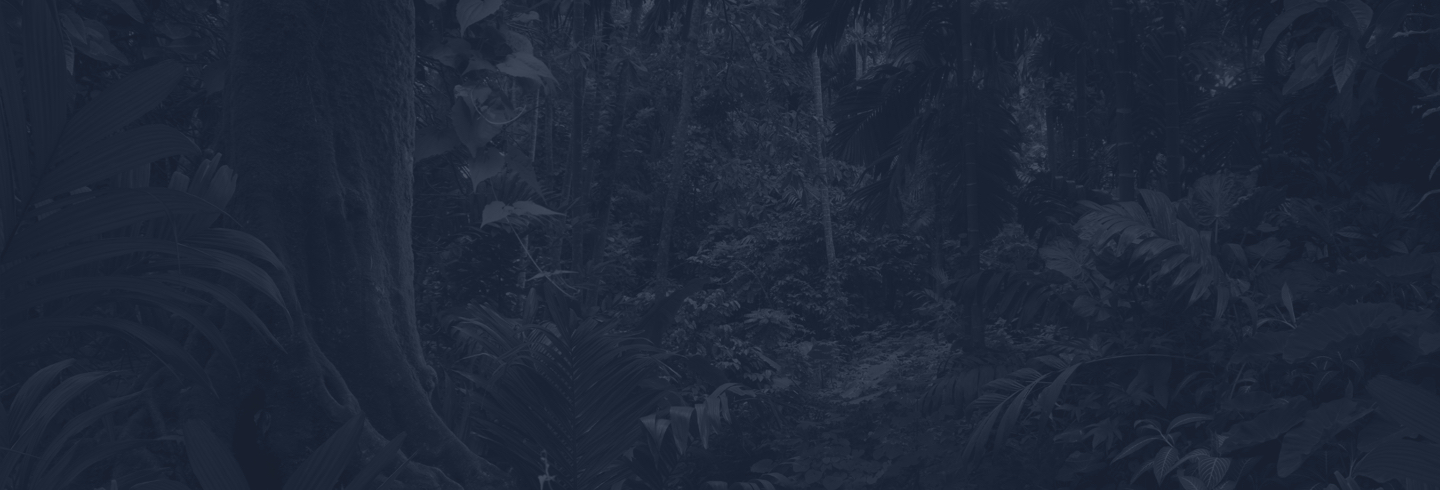Notes from the Field:
Community-led Conservation
in the Philippines
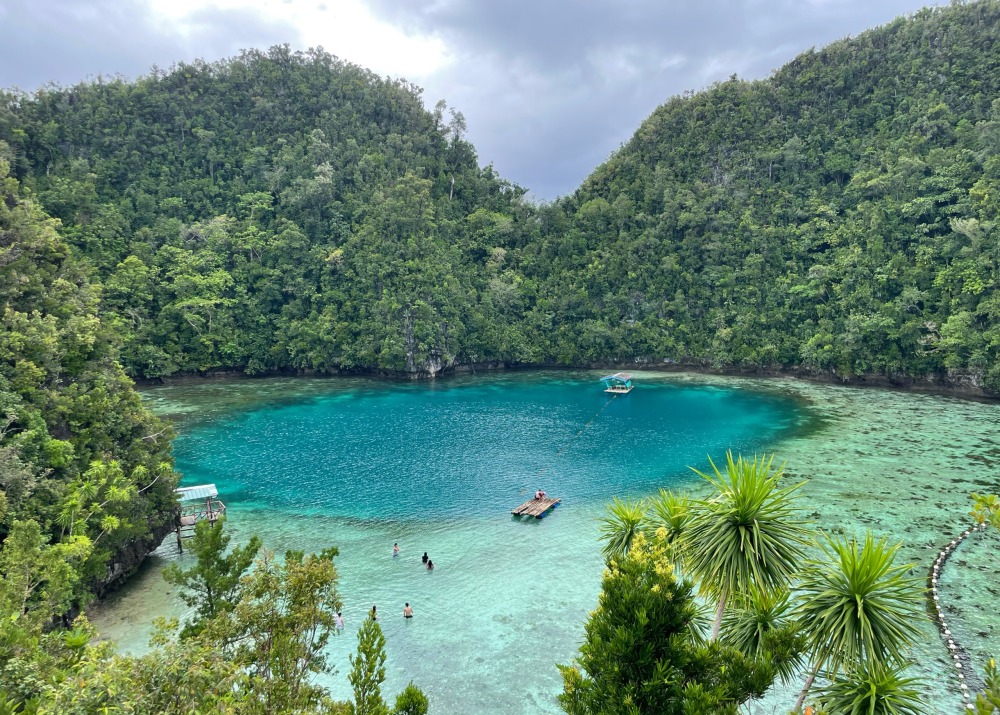
Where rainforests and people rely on one another, locally led conservation is fundamental. Meaningful collaboration with rainforest communities restores justice while protecting species. Rainforest Trust applies these values in our projects around the world and, in 2023, we formalized this commitment in a partnership with the International Land Coalition (ILC).
Last March, Juliana Rossi de Camargo, Rainforest Trust’s Social Safeguards Specialist, joined a regional learning exchange in Subic, Philippines, sponsored through this alliance. The event, Harnessing Biodiversity Through Enhanced Land Rights of Communities, convened participants from eight countries across South Asia. They emphasized the power of locally led conservation and attested, “Where communities have secure rights, they invest in long-term stewardship rooted in traditional knowledge.”
After the event, local partners and ILC network members, Philippine Association for Intercultural Development (PAFID) and Kaisahan, hosted Juliana and ILC officers Stefano di Gessa, Head of Impact, and Ricky Nuñez, Senior Biodiversity Advisor. The group visited Rainforest Trust project sites where communities lead conservation with self-determination in ancestral lands.
Spirituality and Sustainability
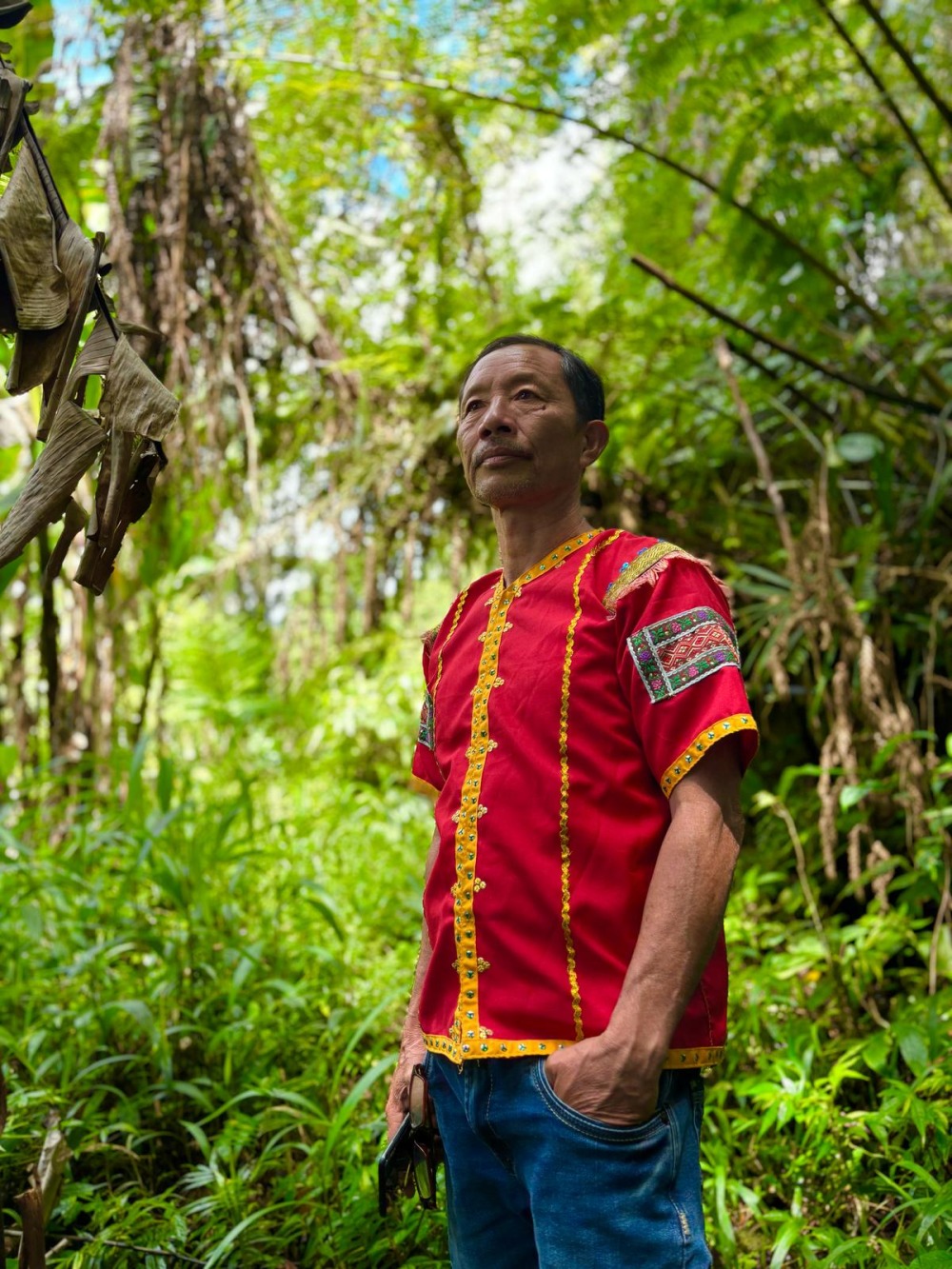
The Mandaya and Mansaka Peoples are solidifying their rights to ancestral domains on Mindanao Island. With PAFID, we are working to support the formal designation of Indigenous Peoples and Community Conserved Areas and Territories (ICCAs) that will cover approximately 60,000 acres of traditional lands. When Juliana visited, almost half of the project’s acreage goal had already been achieved, with additional ICCA designations underway.
On a group hike, an elder paused to explain, “Our ancestors taught us that everything in the forest has a spirit that must be respected. This is why our forests remain intact while others have been destroyed.”
Juliana observed how spiritual practice has direct conservation benefits, such as regard for sacred species and balance in the ecosystem. The guides also pointed out plants used for shampoo, food, and medicine.
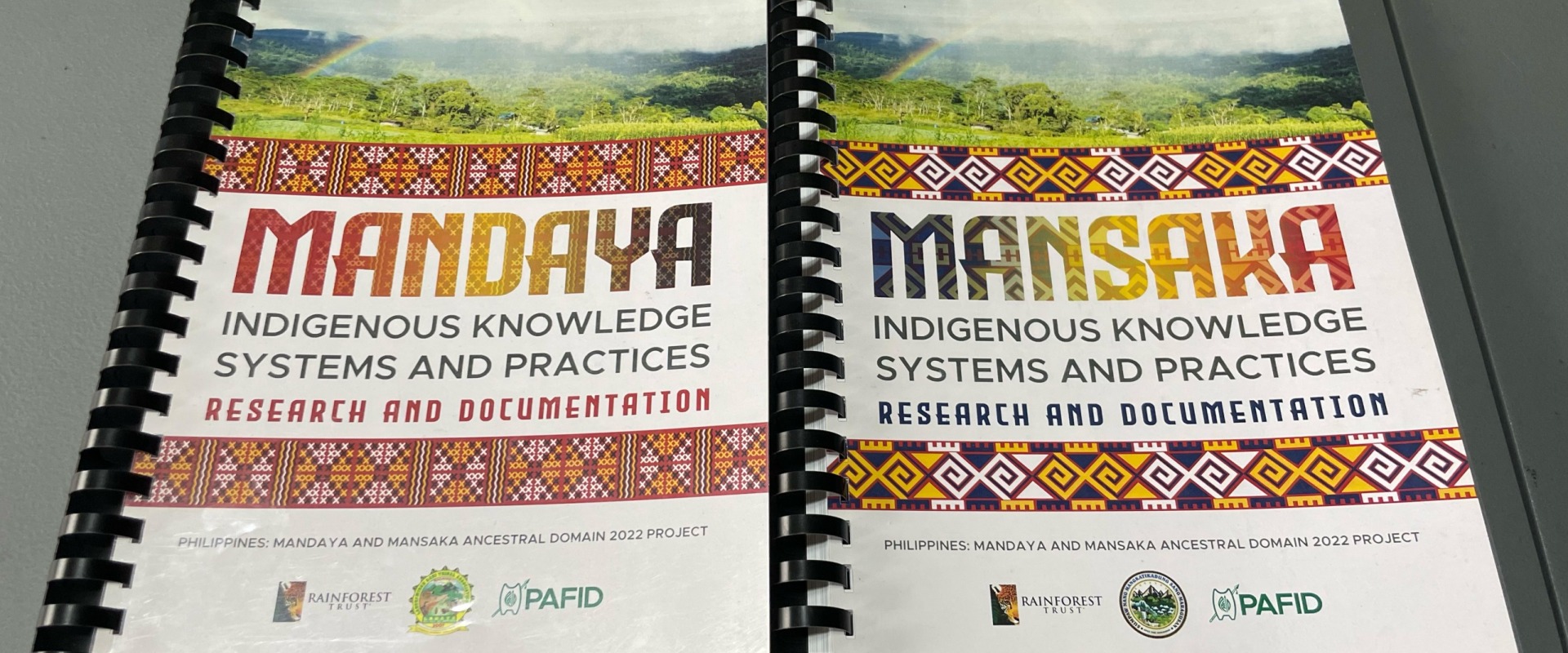
Our local partner, PAFID, funded Indigenous youth who led the first-ever publication of traditional knowledge systems and practices in Mandaya and Mansaka languages.
Deep Connections to Island Habitats
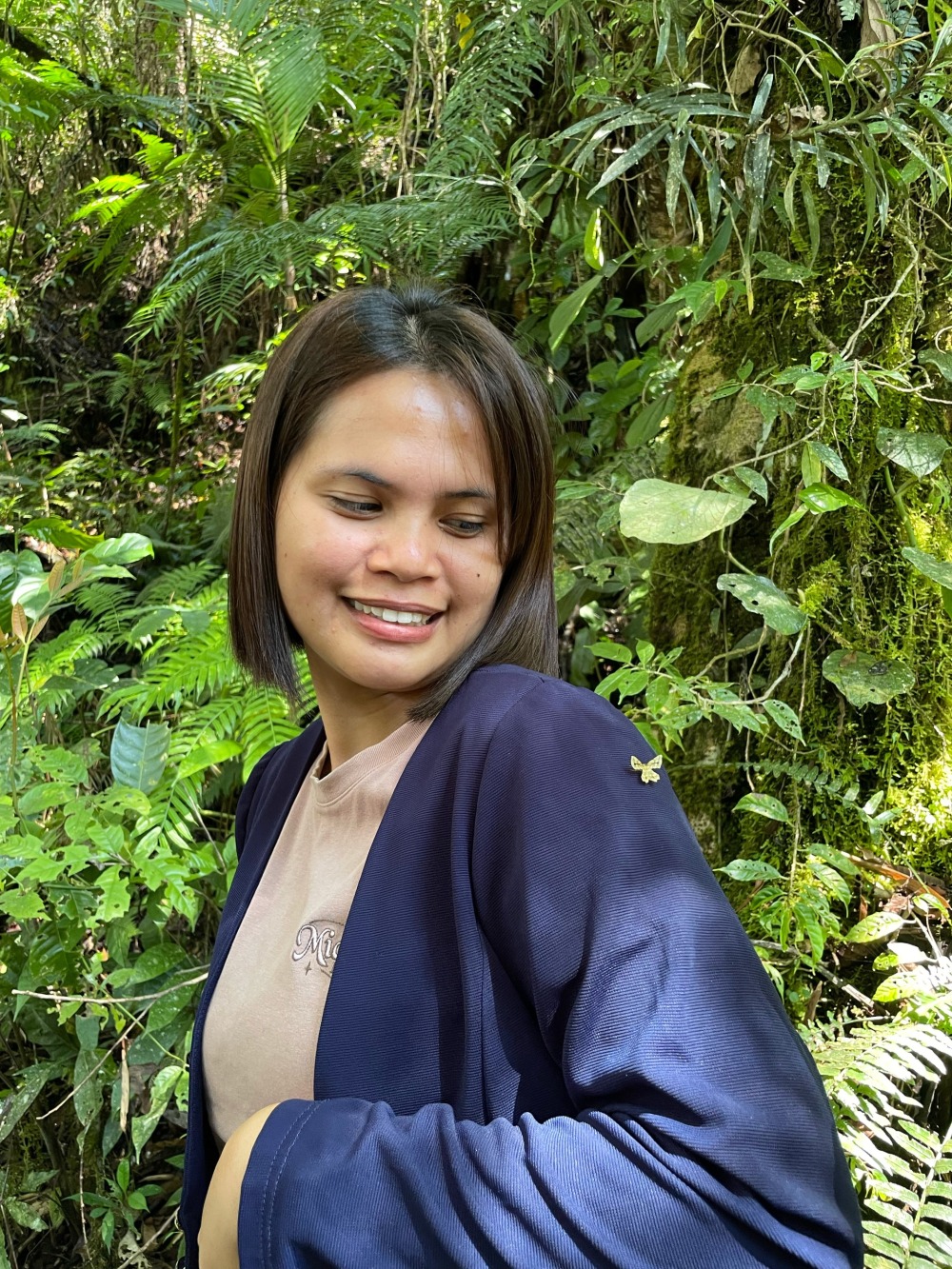
Limestone cliffs rise above the lagoons around Dinagat Island, where local boatmen guided the travelers and explained how the reef’s health depends on the forest and its watershed. They navigated around mangrove roots known to be nurseries for Vulnerable Blacktip Sharks and remarked how local fishermen advocate for their protection.
With Kaisahan and ILC, we are helping communities on Mindanao and Dinagat Islands secure land rights, map conservation areas, and plan protection strategies. Our projects help communities integrate their self-determined priorities for strengthening livelihoods and wellbeing within conservation efforts.
In the fishing village of Sitio Babangnan, Kaisahan supported a women’s organization that established a poultry business and a nursery for the threatened, endemic Mangkono tree. For members of the Hiniusang Kababayen-an sa Association, these businesses have fostered a deep sense of empowerment. More women have been inspired to join their organization.
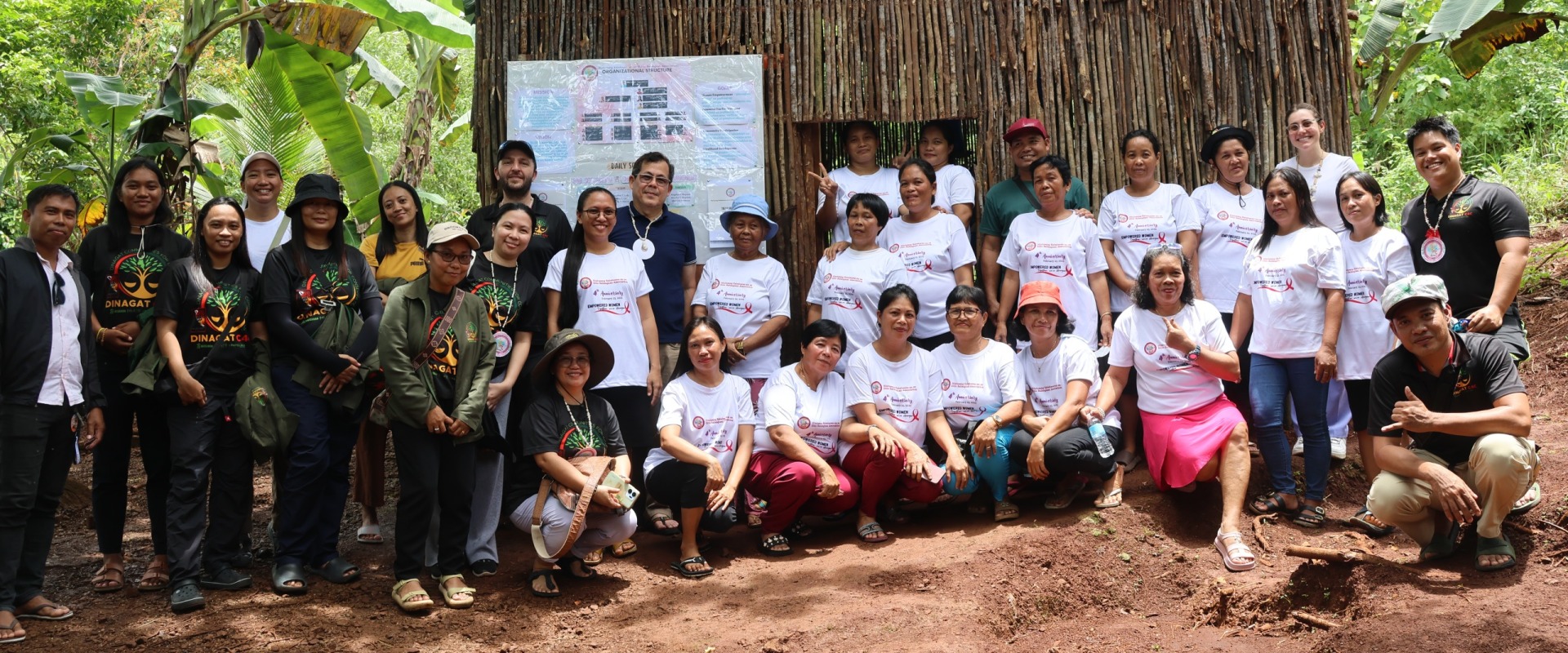
HKSBA and KAISAHAN team in front of the chicken coop.
Inclusive Insight for Lasting Impact
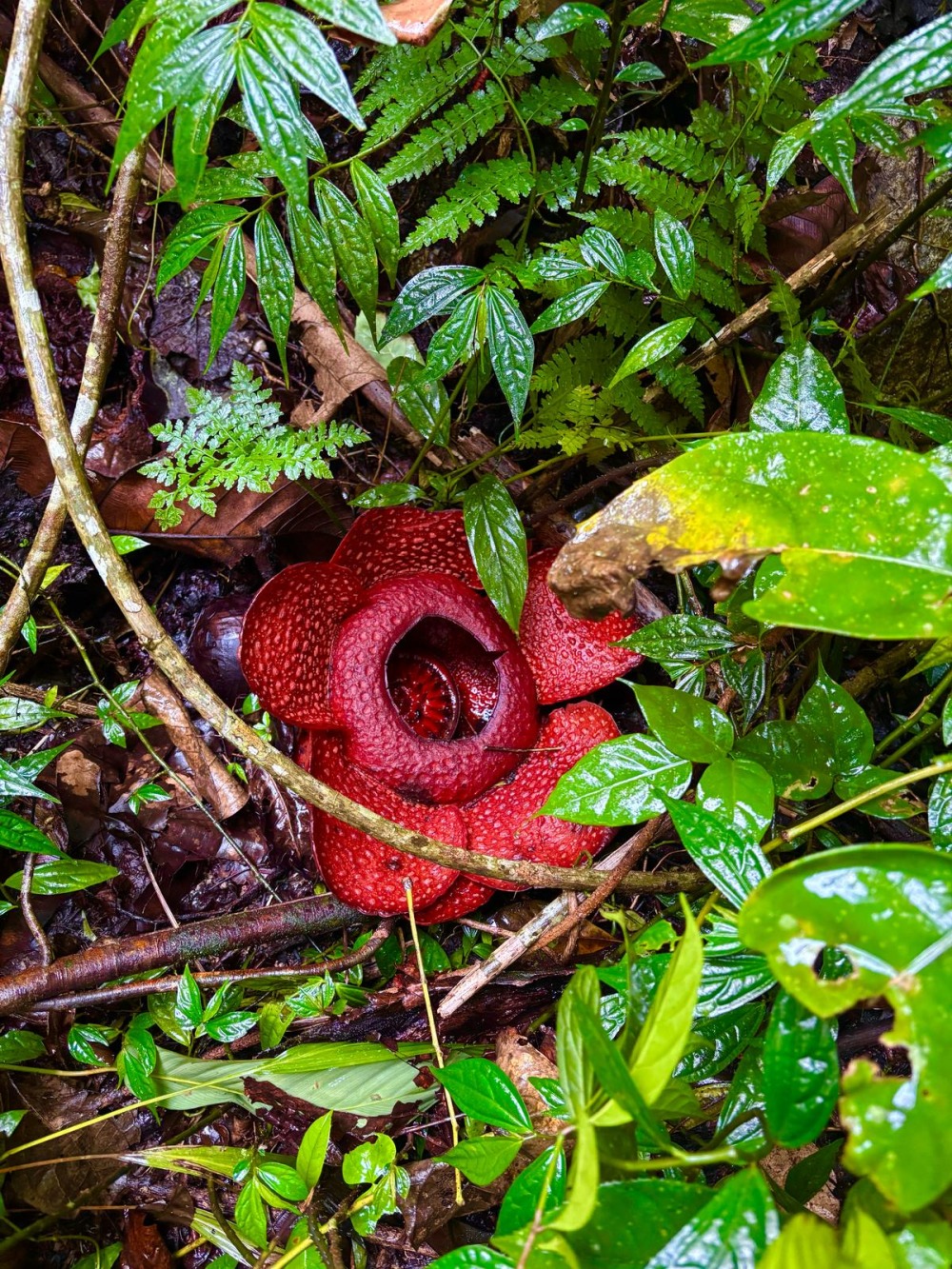
Kaisahan also helped communities establish inclusive conservation councils through the Dinagat Communities for Conservation project (Dinagat C4C). These advisory bodies align local needs and knowledge with rainforest conservation strategies. Juliana met three councils, representing Cagdianao, Dinagat, and Tubajon provinces, and noted the diversity among their constituencies, including women, youth, LGBTQIA+ members, persons with disabilities, seniors, farmers, and fisherfolk. Two of these councils were led by women.
In Tubajon, our project with Kaisahan and the Dinagat C4C council helped protect 8,000 acres under Local Conservation Areas. At a meeting with Juliana and the ILC delegates, Mayor Simplicia “Fely” Pedrablanca highlighted the significance of community-led conservation, emphasizing community ownership as an essential foundation for environmental protection.
Likewise, communities need authority and stability to reach their conservation goals. Local connections and thoughtful partnerships ensure that rainforest protection does more than save acres. It advances local leadership, invests in local economies, and elevates traditional knowledge.

Sign up to receive the latest updates
"*" indicates required fields

